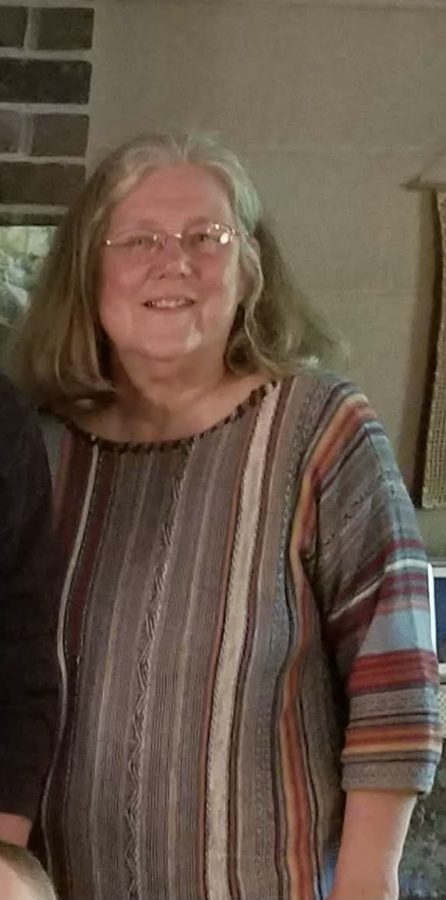Living in a Bus: Meta Rausch
December 23, 2020
The Sherman family lived in the 1950s gangster and mafia-run city of New Haven. They lived in the downtown area of the New Haven Green when the mother and father decided to get themselves and their kids out of there. They had acquired land on Ironworks Road in Killingworth, Connecticut. They acquired the land dirt cheap due to a homicide that had taken place there, which was the only way the family could afford it. The father was going to build a house, while they lived in a converted city bus from a New Haven Bus Company.
The father was a plumber and the median wage at the time was $1.20 an hour. This wage made him less than 5,000 dollars a year. It was hard to raise a family and live on those expenses. That is why they lived in a bus while the father built the house with the help of the local church and supplies from the father’s jobs that the client didn’t need. The second youngest child, Meta, said that “there was always a plan” and they “budgeted to live.” They compensated by growing vegetables and raising animals like chickens and rabbits.
Meta is the second youngest of her parents’ children, and she said growing up in the bus was difficult. There is a 14 year age gap between her and her oldest sibling. Her eldest sister was a freshman in high school at the time and they didn’t have running water nor a proper bathroom. They still had an outhouse even though it was the ‘50s and most families had a proper bathroom. This was very embarrassing for her siblings, but she didn’t care much because she was so young. Meta states that “I went to school every day because we had gym everyday, so I could shower.”
Although the bus was only 1200 square feet, the Sherman’s made the most of the space. Bunk beds lined the walls for all of her siblings and in the far back of the bus was the mother and father’s bed. The front of the bus was tiny; the kitchen area consisted of a propane stove and counter space the size of an end table. Underneath the counter was where they stored all their pots, pans, plates, and utensils for cooking or eating. There were no closets on the bus, so underneath the bunk beds they had wooden bins that stored their clothes. There was no bathroom in the bus, so they would have to trek into the woods to the outhouse. The outhouse had a solar shower and in the spring, summer, and fall the sun would heat the water. In the summertime, the park ranger at Chatfield Hollow in Killingworth, Connecticut would let them bathe in the pond there using a bar of soap.
Due to the minimal space inside of the bus, the family, especially the children, would spend the entire day outside weather permitting. They would be outside all day long and wouldn’t come back until they were called for or it was supper time. The siblings would ride their bikes all over town and would go to their friends’ houses miles away. It was “the ultimate tiny house.” Some of Meta’s earliest memories was one where a gas stove blew up and it burned her ear. She remembers it being all blistered over and her mother had to put lard on it to make it better. She recalls being barefoot all the time, even in the winter when she had to go get the mail and it was freezing outside. She never had a problem with it because they didn’t have winter shoes.
Having five siblings was challenging for Meta because all her siblings were so much older than her. Her second oldest sister, Charlotte, was like her “other mother.” Charlotte took her everywhere and she was very upset when Charlotte got married and moved out. She would spend the night with her sister and her husband all the time. During the summertime, they would all go to the beach at 8AM and wouldn’t come back till the end of the day.
Meta’s memories of her childhood, the bus, and growing up in that small town are what shaped her and her childhood. To this day she still lives in the very town she did growing up, on the same road, and in the house next door to the one her father built.








